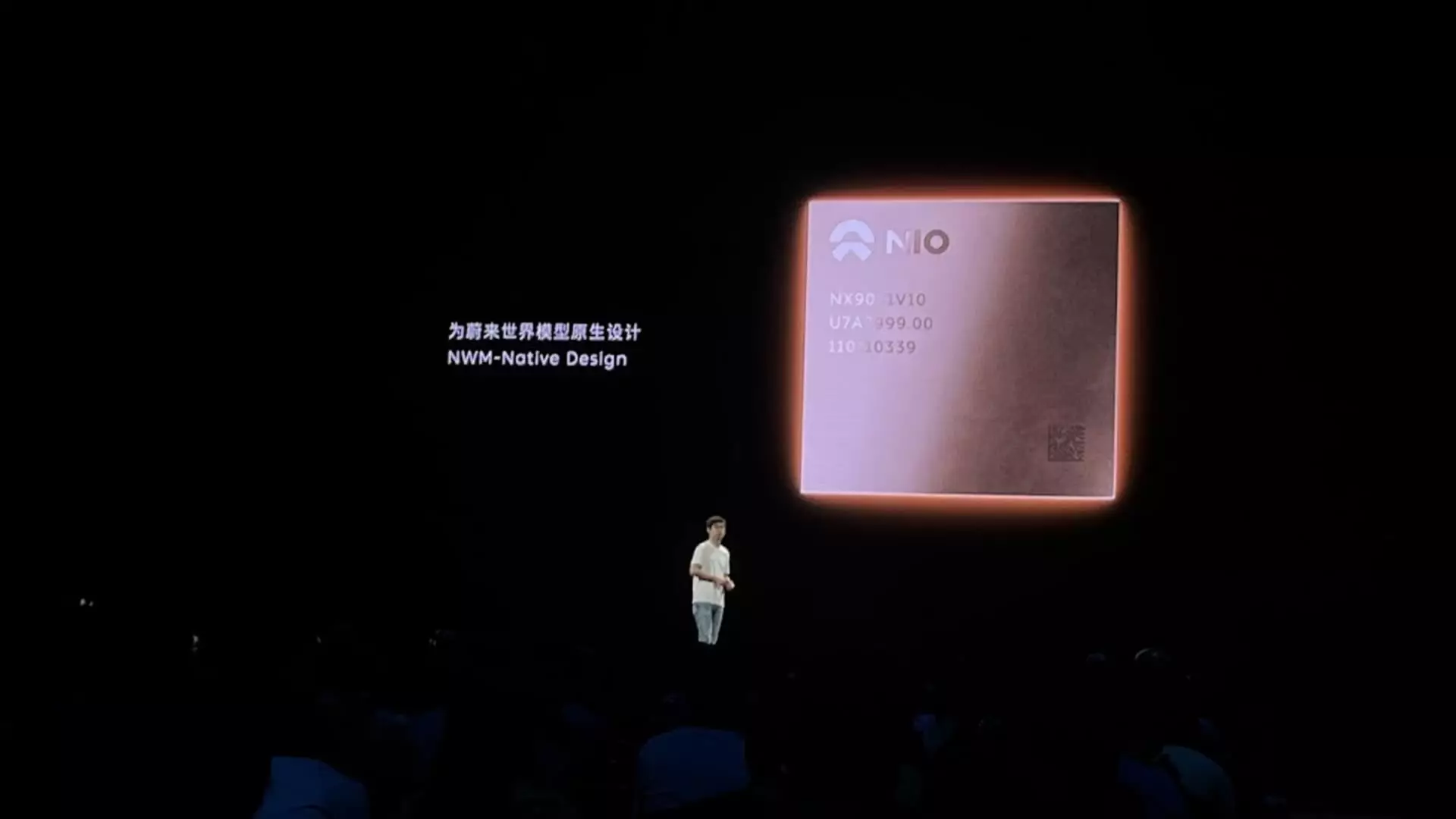Chinese electric car companies are embroiled in a fierce battle, not only on prices but also on technological frontiers. Nio and Xpeng have taken a bold step by announcing the readiness of their in-house designed auto chips for production. This move marks a departure from the reliance on Nvidia chips, a common practice among many major Chinese electric car manufacturers. The decision to develop proprietary chips stems from the need to set themselves apart from competitors who use similar technology to power their infotainment and intelligent driving systems, according to Tu Le, the founder of consulting firm Sino Auto Insights.
The competition in chip development is intensifying, with Tesla and Chinese electric car startups expected to compete in designing their own chips in the near future. On the other hand, traditional automakers are likely to continue relying on Nvidia and Qualcomm for the foreseeable future. The success of Tesla in developing full-self driving technology has been a key motivator for Chinese automakers to invest in self-development system-on-chip. By designing their own chips, Chinese car manufacturers can customize features to meet specific needs and mitigate supply chain risks arising from geopolitical tensions.
Nio’s recent announcement of the NX9031 automotive-grade chip, utilizing a cutting-edge 5-nanometer production technology, represents a significant breakthrough in the Chinese automotive industry. This technological advancement allows for more sophisticated features and functionality, enhancing the overall driving experience. Xpeng, on the other hand, has not disclosed the nanometer technology used for its Turing chip but is well-regarded for its driver-assist technology, considered one of the best in China.
While Xpeng revealed its chip recently, the company’s president, Brian Gu, emphasized the partnership with Nvidia for chip production. This partnership underscores the importance of strategic collaborations in the semiconductor industry. Major players in China’s electric car industry, such as BYD, acknowledge the pivotal role of chips in the development of smart connected vehicles. Wang Chuanfu, the founder of BYD, highlighted the significance of semiconductors in the industry’s transition towards intelligent and connected vehicles.
The U.S.-China tech competition has fueled the shift towards in-house technology development, particularly in the realm of driver-assist features that heavily rely on artificial intelligence. The restrictions on Nvidia chip sales to China have accelerated the adoption of in-house tech solutions by Chinese automakers. Looking ahead, companies like Xpeng are eyeing the global market, positioning themselves as leaders in artificial intelligence-driven car technology.
Government incentives, ranging from subsidies to infrastructure support, have played a crucial role in promoting electric cars in China, the world’s largest auto market. The penetration of new energy vehicles in the market has surpassed 50%, signaling a significant shift towards sustainable transportation solutions. Moreover, companies in China’s electric car development sector are actively contributing to the establishment of new industry standards, such as digital key technologies that enhance user convenience and security.
Collaboration is key in driving innovation and setting new benchmarks in the automotive industry. The collaboration between Chinese and international companies, such as Nio, BYD, Zeekr, and Huawei, with global tech giants like Apple, Google, and Samsung, highlights the interconnected nature of the automotive technology ecosystem. Initiatives like the Car Connectivity Consortium are paving the way for seamless integration of digital key technologies, enabling secure and efficient interactions between drivers and their vehicles.
The future of electric cars in China is heavily influenced by advancements in chip-powered technology and the ongoing competition among key players in the industry. The shift towards in-house chip development, strategic partnerships, government support, and collaborative efforts to set industry standards are shaping the trajectory of electric vehicle development in China. As companies continue to innovate and invest in cutting-edge technologies, the landscape of electric cars in China is poised for significant transformation in the coming years.

